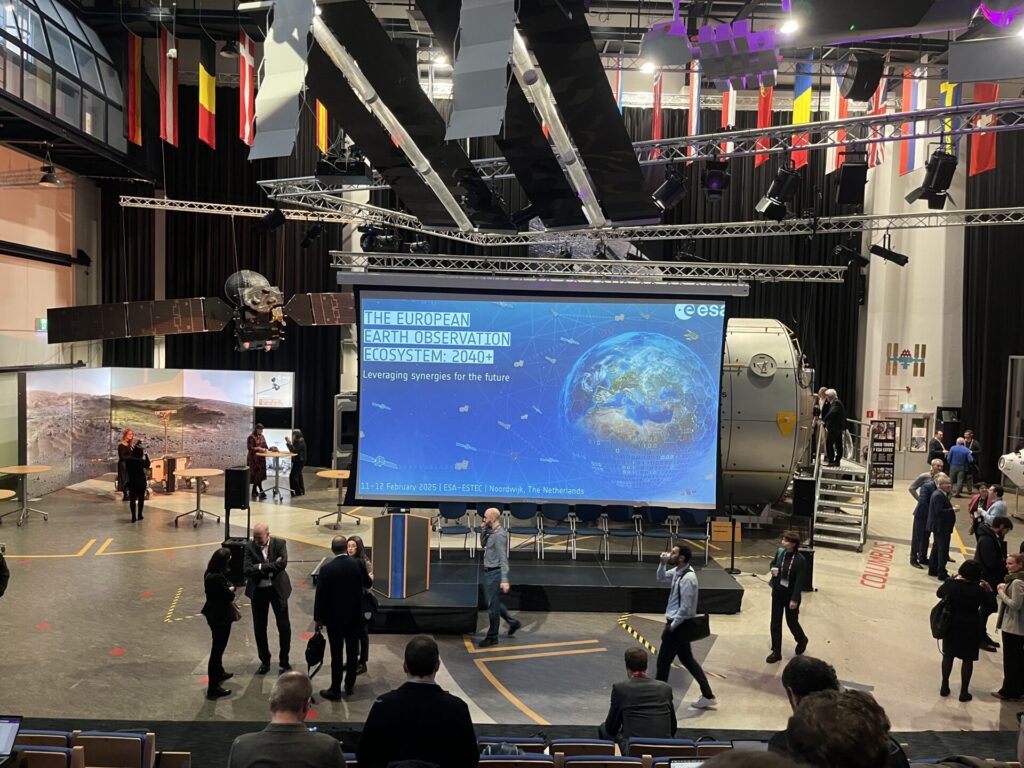Between 11th and 12th February, 7 SENSE students participated in the ESA ESTEC workshops on the future of Earth Observation in 2040+

The workshops provided insights into EO policy, long-term strategies, and industry challenges, broadening our students’ perspective beyond academia and sparking career-related inspiration.
Interacting with experts and learning about ESA’s initiatives encouraged our students to seek future collaboration opportunities and pursue further engagement with the EO community.
For those nearing the end of their PhDs, the knowledge gained was particularly relevant to job applications and interviews, demonstrating a broader understanding of the EO landscape.
Our students valued the chance to connect with leading figures in the EO field, including ESA decision-makers and industry professionals. New connections have been formed by some that could potentially shape their future careers – fingers crossed!
Attending as a group was beneficial, offering mutual support in networking and the opportunity to collectively provide meaningful feedback to ESA on important EO strategy topics. Here are some of the thoughts shared by our students with ESA on the proposed European Blueprint for Earth Observation:
- Accessibility and usability of EO data, ensuring inclusivity for researchers with varying technical expertise
- ESA’s Zero Debris commitment, focusing on enforcement and international policy coordination
- Resilience and redundancy in EO missions, emphasizing the need for continuity strategies
- Training development, particularly in cloud computing and emerging data formats
- Outreach and policy engagement, advocating for stronger EO awareness among policymakers and the public
- Inspiring the next generation of EO scientists through school engagement and curriculum integration
- Ethics, data governance, and misinformation, addressing privacy concerns and AI transparency
- Improved communication and fostering better community interaction.
The students’ valuable comments, based on their experiences of using ESA EO data, was well received, and is being directly fed into the mission requirements for the Next Generation of Sentinel missions.
Students greatly appreciated the financial support and encouragement from SENSE, which made their participation possible and eliminated financial barriers.
A special thank you note goes to Kathy Whaler and Christine Gommenginger for their valuable input and guidance offered to the students before their trip, and to the Natural Environment Research Council and the European Space Agency.



